Environment Justice Matters Archives
The bimonthly Environment Justice Matters digest of news, views, podcasts, and videos.
November 2022

EJ Matters Vol 3. Issue 13 : Climate Change and the 27th Conference of UNFCCC Parties (COP27) and more – Environment Support Group
27th COP of United Nations Framework Conference on Climate Change at the seaside resort city of Sharm El Sheikh in Egypt during 6th – 20th November 2022. The main gain, it appears, is the decision to establish and operationalize a ‘loss and damage fund’ which most vulnerable countries have been dema…
October 2022

EJ Matters Vol 3. Issue 12 : Regressive Amendments Proposed To Environmental Laws Of India Resisted – Environment Support Group
The unanimous conclusion of legal scholars, environmental and social justice activists, researchers, etc. is that all of the proposed Bills must be withdrawn immediately.
August 2022
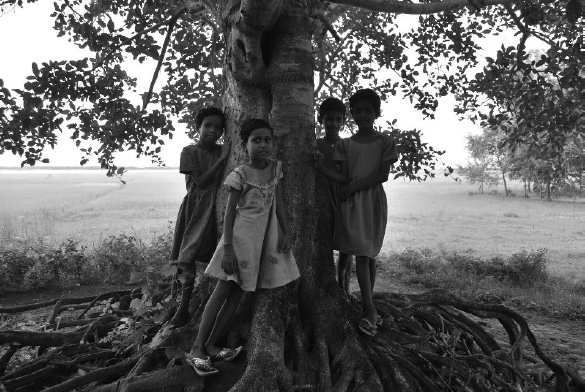
Environment Justice Matters_ Vol3. Issue 11- Reflections: 75 years since Independence | ESG is in its 25th Year!
It is the 25th year of Environment Support Group (ESG), as India turns 75! It has been a remarkable journey thus far, and has been made possible due to the support and cooperation we have received from hundreds of folks, those who volunteered and worked with us, those who contributed, communities we have been privileged to work with across India and elsewhere, and for the support we have received from so many of our partner agencies and collaborators. It is this support that keeps us going, despite the challenges of our times. And we look forward to your continued cooperation and support.
July 2022
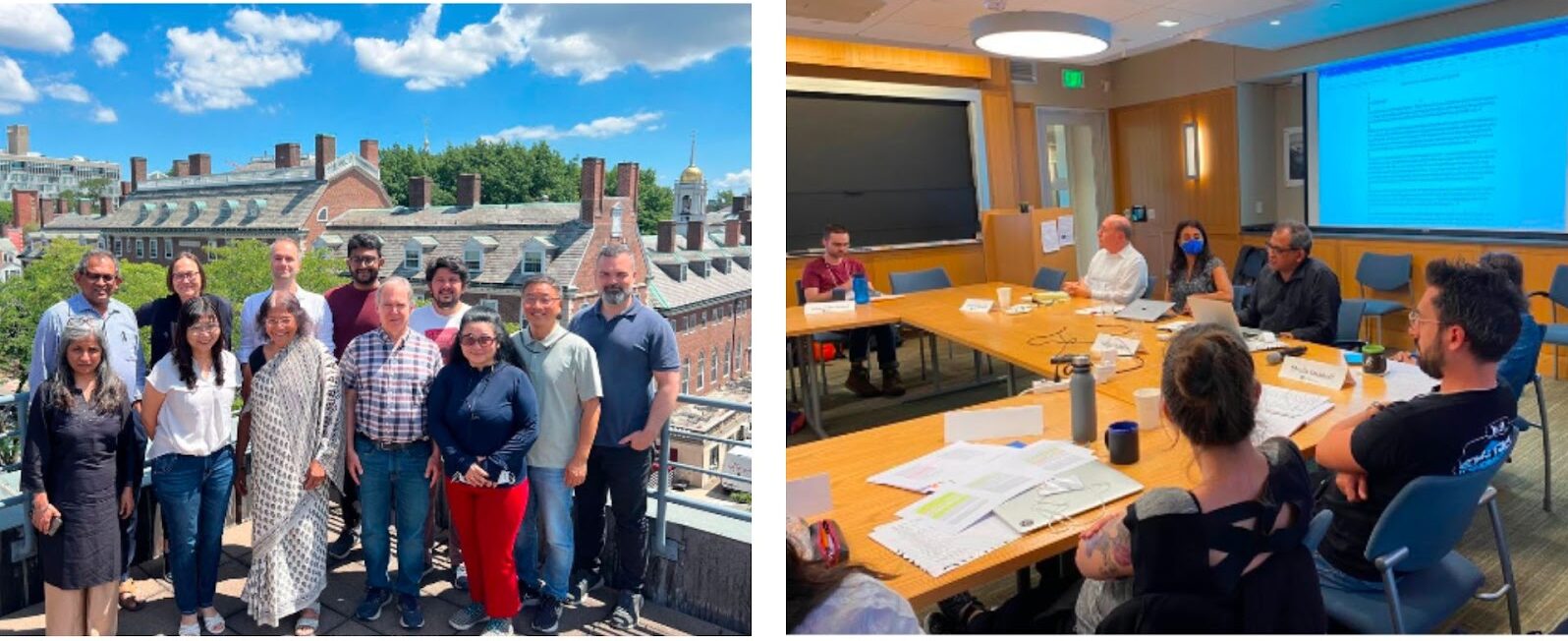
EJ Matters Vol 3. Issue 10
The @CompCoRe_STS project organised the first (semi-)in person meeting at @HarvardSTS . Leo Saldanha and Bhargavi Rao of ESG are part of this network and writing the India paper as part of a 50 country study on how COVID was managed, an international research effort led by Prof. Sheila Jananoff of Harvard Kennedy School and Prof. Stephen Hiltgartner of Cornell University.

EJ Matters Vol 3. Issue 9: Environment Ministry proposes comprehensive dilution of India’s Environmental Laws & More..
There has been systematic dilution of India’s forest and biodiversity protection laws for several years now. But the Indian Ministry of Environment, Forests and Climate Change now proposes to fundamentally change the essential characteristic of India’s environmental jurisprudence with fundamental changes that it proposes to India’s umbrella environmental law, the Environment Protection Act, 1986, and also the Water (Prevention and Control of Pollution) Act, 1974, Air (Prevention and Control of Pollution) Act, 1981 and Public Liability Insurance Act, 1991.
June 2022

Environment Justice Matters_ Vol3. Issue 8
The Yale Centre for Environmental Law and Policy and Columbia University’s Earth Institute issued the 2022 Environmental Performance Index (EPI) report recently. It is projected as a “data-driven summary of the state of sustainability around the world” and uses “40 performance indicators across 11 issue categories” to rank “180 countries on climate change performance, environmental health, and ecosystem vitality”. India has been ranked at the bottom of this list, scoring merely 18.9 points of a possible 100.
May 2022

Environment Justice Matters| Environment Day | Vol3. Issue 7
At Environment Support Group(ESG), every day is Environment Day. And it has been the case for us ever since the organisation was founded, 25 years ago. Yes, it is the 25th year of this initiative and we hope we are doing our bit to be grateful for the incredible opportunity of being a part of this living planet.
April 2022

Environment Justice Matters Vol 3. Issue. 6 | Large Gaps In Bengaluru’s Urban Planning Process & More
The IPCC sixth assessment report released early April notes that climate misinformation can jeopardise climate action and weaken public demand for mitigation and adaptation measures. The report acknowledges the role of misinformation in fuelling polarisation, saying, “Together with the proliferation of suspicions of “fake news” and “post-truth”, some traditional and social media contents have fuelled polarisation and partisan divides on climate change in many countries.”
March 2022
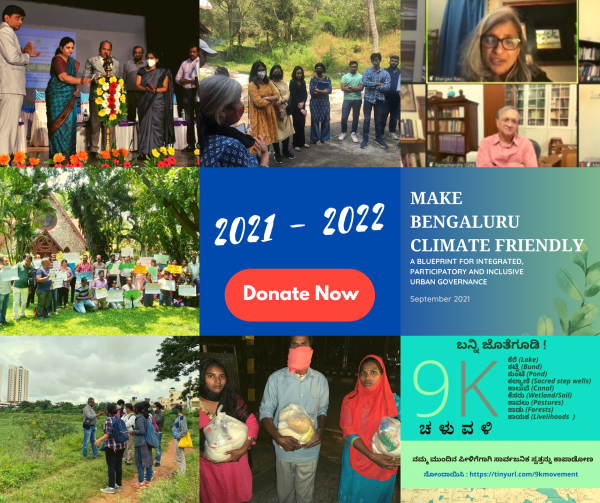
Environment Justice Matters- Vol3. Issue 5 | It’s a Last-Minute Gift that Makes a Difference
In the final hours of the 2021-22 Financial Year, we invite you to support ESG’s critical efforts advancing environmental justice.

Environment Justice Matters- Vol3. Issue 4 | Impacts of the War, Amazon rainforest approaching a tipping point
The war is also a reminder for the urgent need for stringent international control necessary in the use of thermobaric, cluster and nuclear weapons, owing to the brutality and highest dangers arising from the use of these inhuman tools of mass destruction.

Environment Justice Matters- Vol3. Issue 3
A key strategy promoted to tackle climate change, especially from the North, is to keep coal, oil and gas in the ground and shift to renewables. Which, as Thea Riofrancos argues in Foreign Policy, is fraught with serious inconsistencies even if this involves shifting the mining of minerals critical to the renewable energy transition to the Global North. ”Global north onshoring does not repair the forms of environmental harm disproportionally meted out in the global south”, he argues. Besides, this would create new problems which primarily affect oppressed populations within affluent countries.
February 2022

Environment Justice Matters Vol. 3 Issue 2
The Wildlife Protection Act, 1972 appears poised to be the next victim of the continuing onslaught on environmental protections by the Union Government. The Wildlife Protection (Amendment) Bill, 2021 endangers several common but declining species of wildlife by allowing them to be classified as “vermin” and thus be opened up to being hunted. Several species that were previously protected under the Schedules of the Act have been removed in the amendments without any justification.
January 2022

Environment Justice Matters Vol. 3 Issue 1 – Environment Support Group
Leading environmentalist, rationalist, educator and philosopher from Kerala, Prof. M K Prasad, lost his battle with COVID on 17th January 2022. Prof. Prasad was the inspirational force behind the successful Save Silent Valley Movement, which forced former Prime Minister Indira Gandhi to stop the dam that would have destroyed the rainforest. As a key leader of the Kerala Shastra Sahitya Parishat (a people’s science movement), Prof. Prasad inspired thousands into environmental and social justice action. Even days before he passed on, Prof. Prasad joined dozens of leading intellectuals from across Kerala in appealing to Chief Minister Pinarayi Vijayan for dropping of the most controversial ‘Silverline’ project which is widely considered to be one of the most environmentally and socially destructive rail projects conceived. Prof. Prasad’s life and work will always be an inspiration to dissenters, rationalists, and those working for the advancement of environmental and social justice.
December 2021

Environment Justice Matters Vol. 2 Issue 23: Reflections on 2021 – Environment Support Group
In collaboration with other researchers, we conducted a fact-finding mission exposing the land grab by mega solar projects at Nagaon, Assam. We also contributed the India entry in Comparative Covid Responses, an international project led by researchers at Harvard and Cornell University. Meanwhile, ESG’s legal sensitization efforts included workshops on lake protection and solid waste management. The lake protection workshops were conducted in collaboration with the Karnataka Legal Services Authority across all districts in Karnataka, and were attended by several government officials, administrators, bureaucrats and representatives from NGOs across all the 30 districts in Karnataka. The Solid Waste Management workshops in Imphal and Mangaluru were held with support from Break Free From Plastics (BFFP) and in collaboration with Imphal-based Indigenous Perspectives and the Mangaluru City Corporation. We ended the year with an immersive certificate course on environmental and social justice in India organised for students of O.P. Jindal Global University.

Environment Justice Matters- Vol 2. Issue 22
The All Saints Church congregation and the wide public came together on 28th November demanding the 150-year-old heritage church be protected from a concrete station box which Bengaluru Metro Rail Corporation Ltd. (BMRCL) proposes to build by destroying the biodiversity-rich sacred grove. Steps for emergency acquisition of the grove were initiated by Karnataka Industrial Area Development Board (KIADB). This section of the Metro is financed by the European Investment Bank. Besides destroying the biodiversity-rich garden, which foregrounds the heritage Church, it is a space used for all church gatherings. Besides, students of Arpana Special School and residents of the Old Age Home run by the church use this space every day. Cutting soil, uprooting 150-200 years old trees, digging deep, blasting and construction activities merely 20 meters from the fragile church could result in its collapse.
November 2021

Environment Justice Matters- Vol 2. Issue 21
“Despite its obvious failures to step up to the grave impacts of climate change the world is now suffering from, the conservative view is that “it is better than letting the effort slide, just as the UN-sanctioned circus of the COPs is better than leaving the world without any such forum at all”.
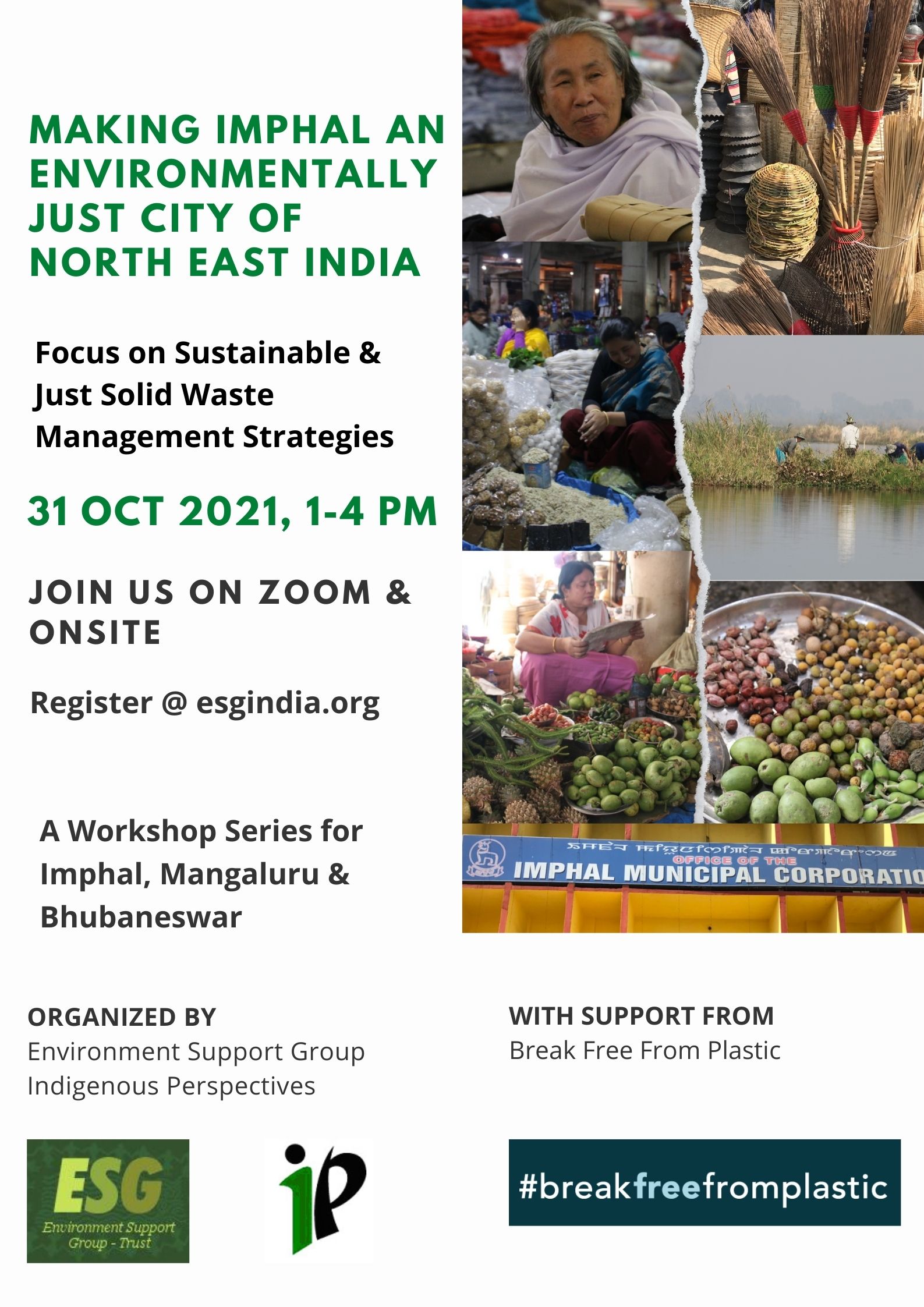
Environment Justice Matters- Vol 2. Issue 20
Environment Support Group is also pleased to invite you to Making Imphal an Environmentally Just City of North East India: Focus on Sustainable and Just Solid Waste Management Strategies. This is the first session in a 3-part workshop being conducted across India with support from Break Free From Plastic. The session will be conducted in Meitei and English and will be attended by representatives of local waste worker unions, fishing unions, student unions, local administrators, and NGOs. This is the latest in ESG’s longstanding efforts to work with communities in different parts of the country to address the challenges posed by waste mismanagement to environmental and public health and to use these as an opportunity to promote decentralized and democratic urban governance.
October 2021

Environment Justice Matters- Vol 2. Issue 19
On 9th October 2021, the floating village Champu khangpok at Loktak Lake, Manipur celebrated World Migratory Bird Day organised by All Loktak Lake Areas Fisheries Union Manipur (ALLAFUM) in partnership with Ngamee Lup, Pumlen Pat Khoidum Lamjao Kanba Apunba Lup, Environment Support Group and Indigenous Perspectives. Renowned ornithologist Dr. S. Subramanya spoke on the critical importance of protecting wetlands like Loktak for protecting and conserving water birds, as he highlighted the wetland is a habitat of the Central Asian-Indian Flyway and East Asian-Australasia Flyway for migratory birds. Local activists in Manipur asserted the importance of the community to stand up against corporate bodies and private companies which are intent on developing the lake into a mega tourism destination.
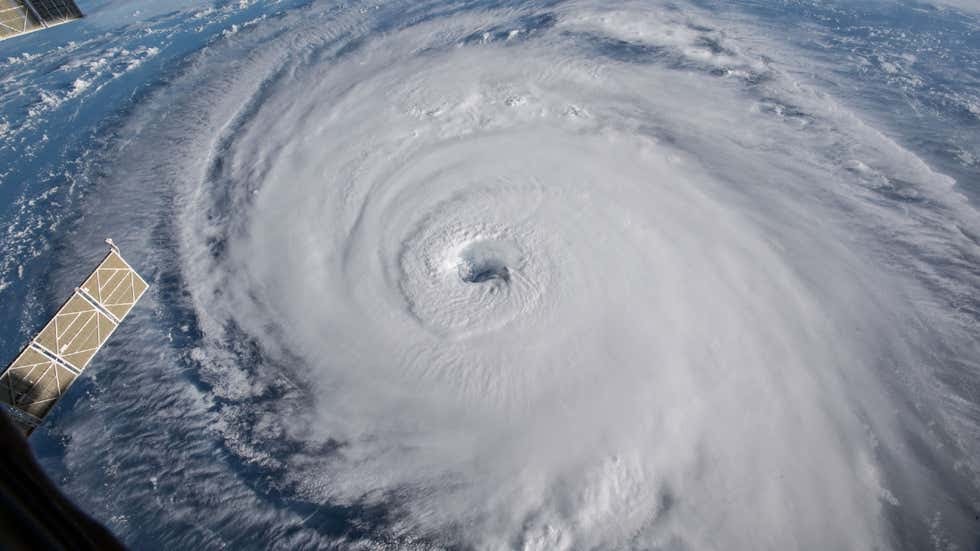
Environment Justice Matters- Vol 2. Issue 18
Cyclone Gulab, and it’s Arabian Sea counterpart Shaheen, are drawing interest from experts who have commented on the rarity of cross-peninsula cyclonic activity. This is only the latest evidence of how the climate crisis is manifesting in India, bringing with it new vulnerabilities and amplifying existing ones. Anil Padmanabhan, drawing upon the work of meteorologist Sulochana Gadgil, argues that it is time for a tectonic shift in how we understand the monsoon and its increasingly uneven distribution – across regions and time – due to climate change.
September 2021
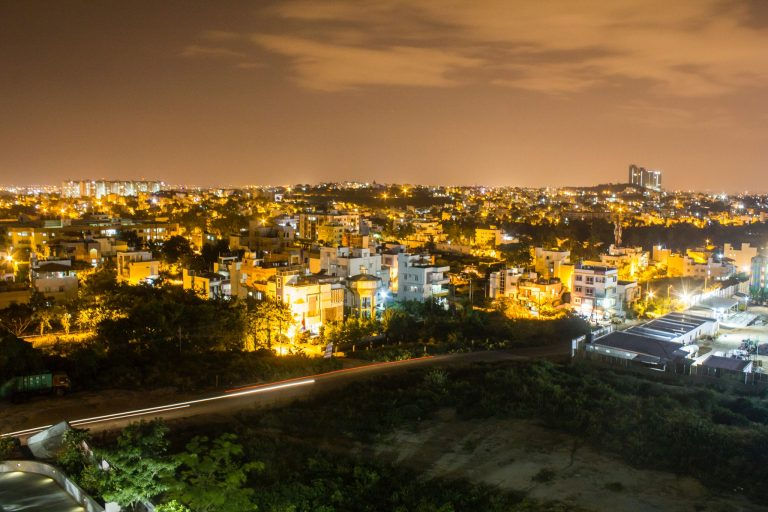
Environment Justice Matters- Vol 2. Issue 17
During March and June 2021, ESG worked with administrators of Bruhat Bengaluru Mahanagara Palike and Karnataka Government, senior representatives of regulatory agencies, representatives of multiple sectors across Bengaluru, academicians and experts, and importantly the wide public, in 9 webinars held through the 2nd major lockdowns imposed due to COVID in developing “Make Bengaluru Climate Friendly: A blueprint for integrated, participatory and inclusive urban governance”.

Environment Justice Matters- Vol 2. Issue 16
ESG and FEVOURD-K (Federation of Voluntary Organisations for Rural Development in Karnataka) organised on 2nd September a workshop on
“Protecting, Conserving, And Rehabilitating Lakes As Commons”.
The participation was from across Karnataka and also witnessed participation from senior functionaries of Karnataka State Legal Services Authority and Karnataka Tank Conservation and Development Authority.
August 2021
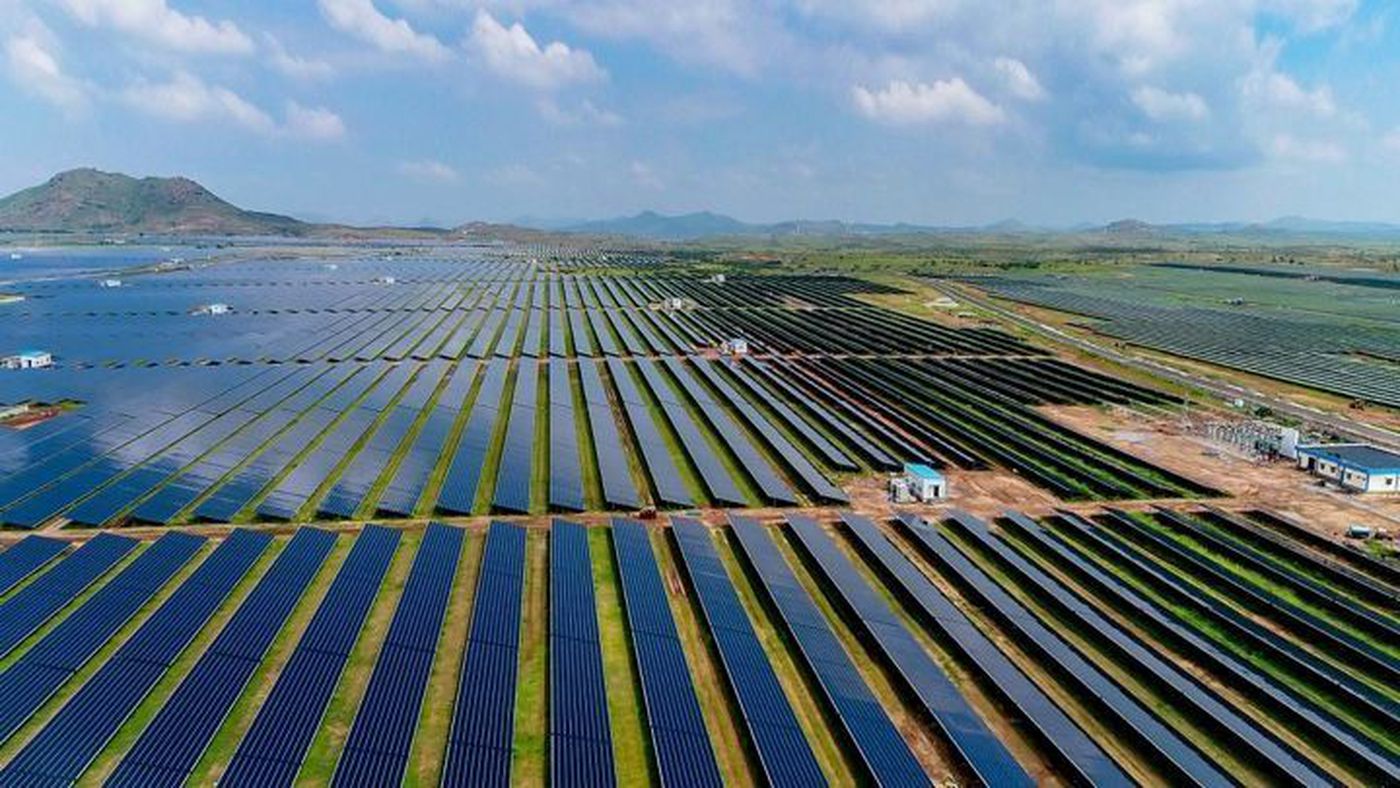
Environment Justice Matters- Vol 2. Issue 15
“Leafing through the field notes, this annotated page in particular is very worrying. Over the last 2 years, the pandemic has devastated life everywhere and changed the social order. While the rich can plan to leave the pandemic affected planet for a few minutes into zero gravity with space travel, the poor are grappling for breath every minute…”. Bhargavi S Rao, Trustee, ESG presents the lesser known ground realities which are largely hidden by prevailing aggressive promotion of mega solar parks such as in Pavagada.
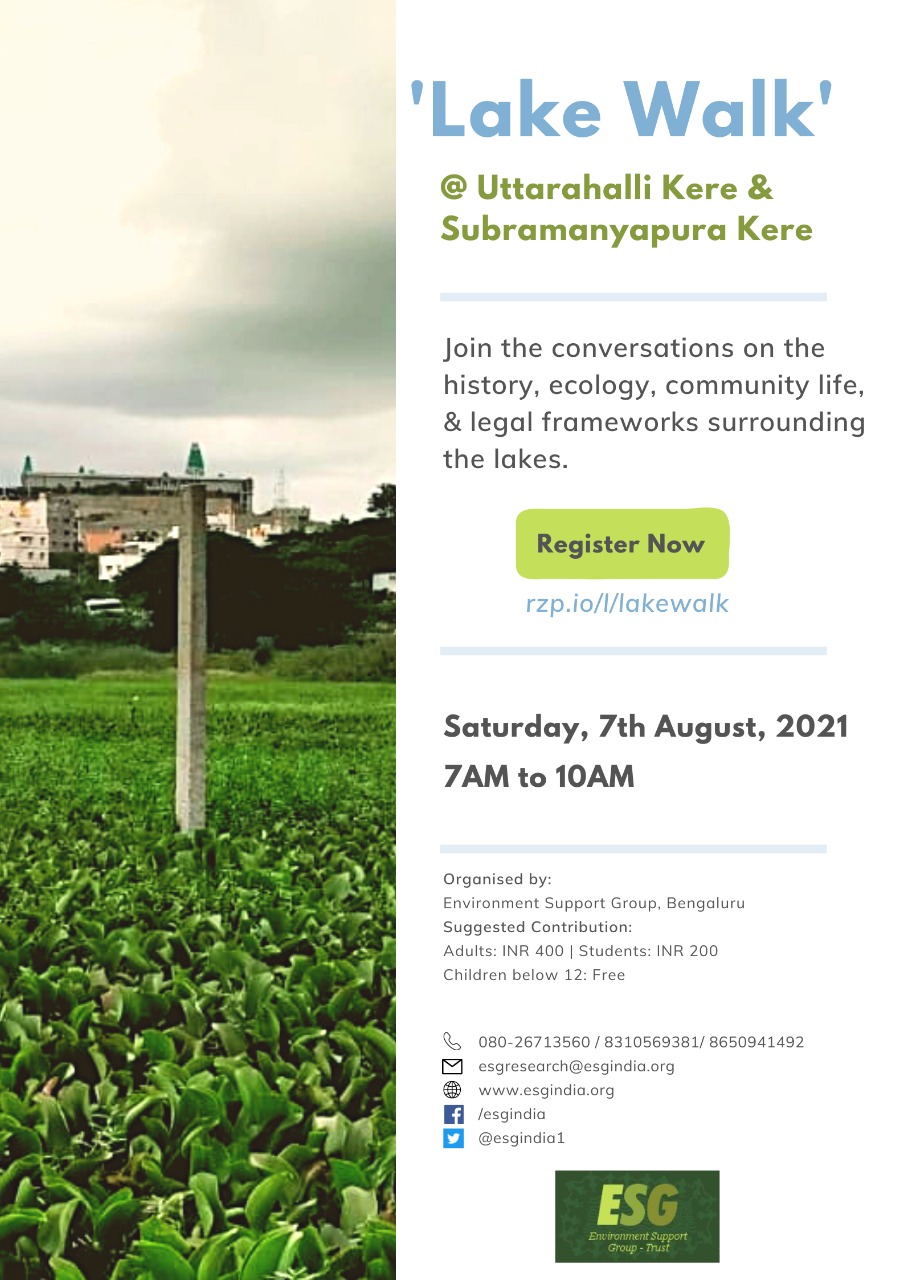
Environment Justice Matters- Vol 2. Issue 14
The first ‘Lake walk’ (originally scheduled for Saturday, 7th August 2021) is now rescheduled for Saturday, 21st August at Subramanyapura kere and Uttarahalli kere in Bangalore South. By participating in this walk, you would be able to appreciate the importance of protecting the natural terrain to ensure lakes are functional, besides also appreciating distinctive narratives of the lakes: their history, ecology, life of lake communities, in addition to overarching legal frameworks that assist in building progressive imaginaries.
July 2021
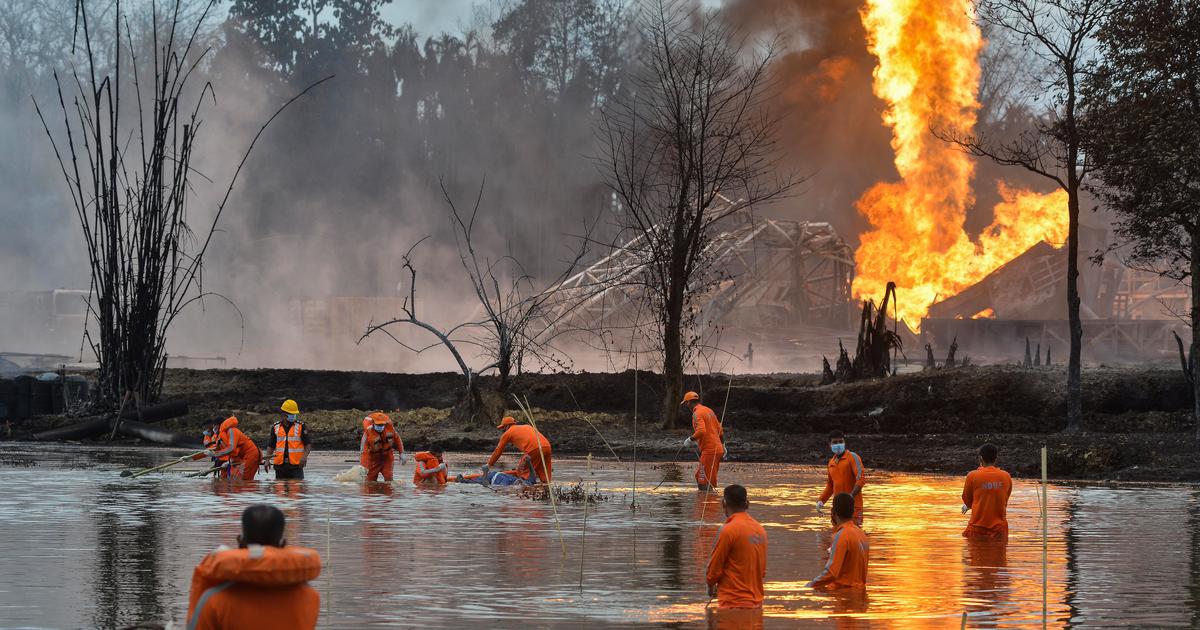
Environment Justice Matters- Vol 2. Issue 13
Scientists have provided fresh evidence linking heatwaves that ravaged western Canada and the US with climate change. They termed the occurrence of the phenomenon “virtually impossible” without human influence. This explainer in the Indian Express decodes the phenomenon of ‘heat dome’, the basis of …
June 2021
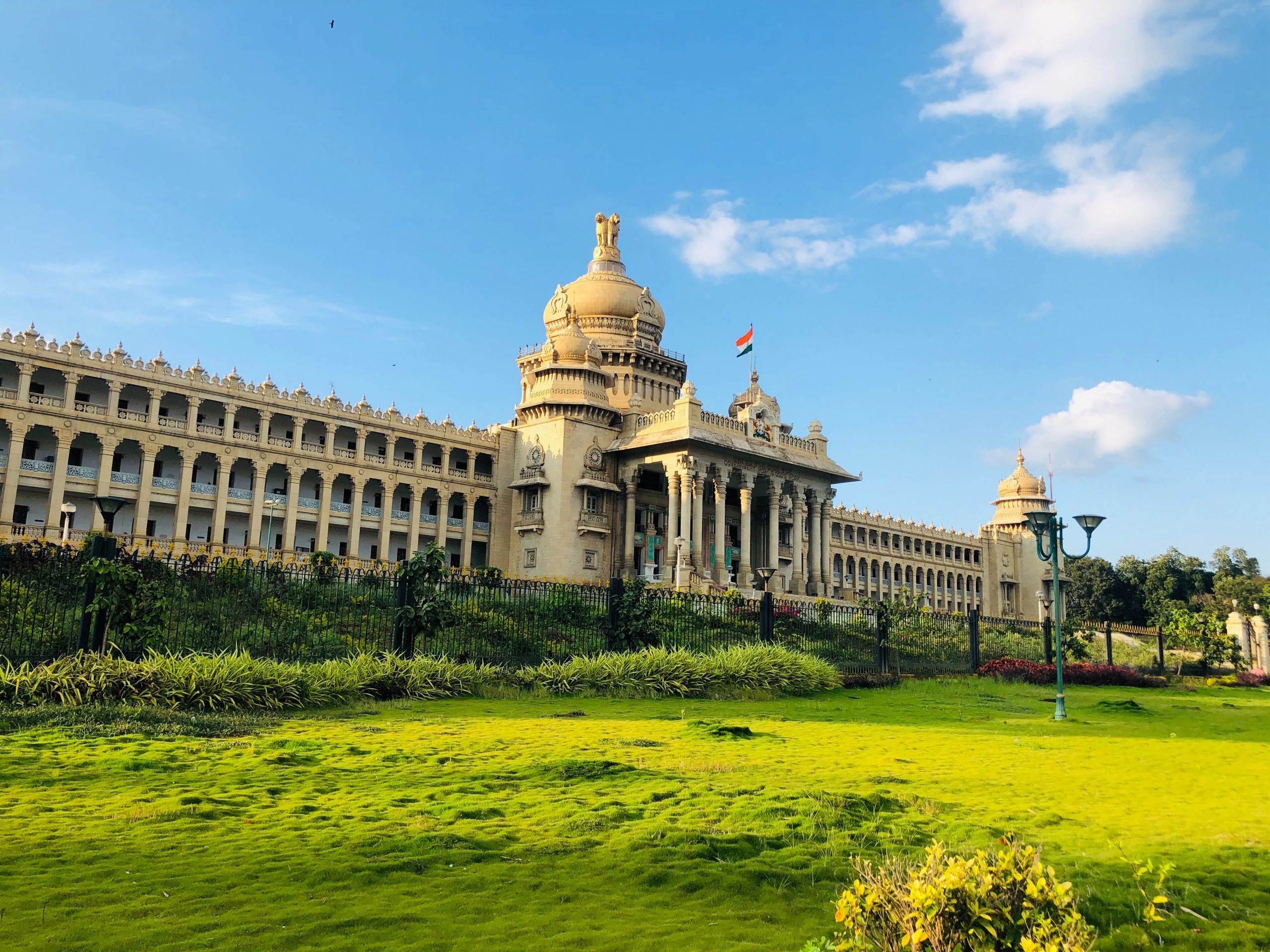
Environment Justice Matters- Vol 2. Issue 12
The second wave of the pandemic brought unprecedented challenges for us as an organization. The upsurge in Covid infection made us put a indefinite pause on our bi-weekly newsletter as colleagues, family, friends and acquaintances either fell ill or we lost them to the pandemic.
As we resume our bi-weekly newsletter, we invite you to also read the unpublished issues of EJ Matters, which we have archived on our website.

Environment Justice Matters- Vol 2. Issue 11
Week 8 of the series saw rich discussions on how to build climate-resilient and inclusive infrastructure for Bengaluru. A major theme that emerged was the need to plan infrastructure for all sections of society, utilising consultative processes from the ward-level up. Read our previous session reports here.
May 2021

Environment Justice Matters- Vol 2. Issue 10
Dr. Tekur, a dear friend and trustee of ESG, left us on 16th May 2021 after he lost his valiant struggle with Covid. As a young doctor he served in the Indian Army, and was even selected to be one of three who would be India’s first cosmonaut, till a training injury put him out of contention. He left the Army as a Captain and dedicated his life to being the People’s Doctor. A very popular General Physician and pediatrician, Dr. Tekur also helped shape Community Health Cell, now Sochara, in its formative years. He spared no effort to be of help and to the very end was in the midst of patients working to save thousands from COVID and other ailments.

Environment Justice Matters- Vol 2. Issue 9
Electric vehicles have often been touted as a panacea to reduce particulate emissions from automobiles. But data has emerged that the biggest source of PM 2.5 is tire wear, not vehicle exhaust. This could raise questions about the viability of mass transition to Electric Vehicles.
Apr 2021

Environment Justice Matters- Vol 2. Issue 8
S G Neginhal, IFS (Retd), one of India’s most-loved foresters who played a crucial role in greening Bangalore, Delhi and many other cities across INdia. He also was the author of several books documenting trees of western ghats and also cities. Neginhal was actively involved in various afforestation and research activities till his last days. He was 92 year when he passed on, due to COVID.

